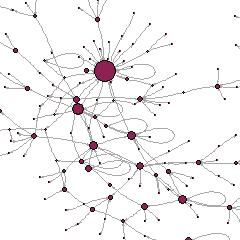Online health communities have been demonstrated to be an important part of the self-empowering experience of today’s patients. While most attention so far has been devoted to self-styled health communities, where patients autonomously share expertise and experience, today policymakers and healthcare providers are harnessing the power of this very idea and are offering similar solutions themselves.
Earlier this week at the OuiShare Fest Barcelona – a major get-together of the Spanish-speaking collaborative economy community in Europe – a few of these initiatives were presented.
 Social Diabetes is a small company founded by and for patients, that offers a mobile app for online, real-time health monitoring services. Diabete sufferers can use it to optimally adjust their insulin dosage based on their carb count and blood sugar levels; in some cases, they can also track their exercise and patterns of behavior to receive alerts whenever relevant. Patients can share this information with their doctors, also through the app; and can discuss with other patients. This is an example of a user-based innovation where autonomous patients take the initiative, aiming to take control of their health and life. Still, physicians have been allowed in: the platform has a medical advisory board, and individual doctors can register as users to follow their patients.
Social Diabetes is a small company founded by and for patients, that offers a mobile app for online, real-time health monitoring services. Diabete sufferers can use it to optimally adjust their insulin dosage based on their carb count and blood sugar levels; in some cases, they can also track their exercise and patterns of behavior to receive alerts whenever relevant. Patients can share this information with their doctors, also through the app; and can discuss with other patients. This is an example of a user-based innovation where autonomous patients take the initiative, aiming to take control of their health and life. Still, physicians have been allowed in: the platform has a medical advisory board, and individual doctors can register as users to follow their patients.
Rarecommons, instead, is an example of an initiative taken by researchers in a hospital, themselves leveraging the power of web connections and of community-based approaches. As part of a research project on rare diseases affecting children, an online platform has been designed to help families and physicians to collaborate in the generation of scientific knowledge. The issue with these diseases is that precisely because they are rare, knowledge is scarse: that’s why it is key to enroll children and families to participate in new studies. The programme aims to encourage them to do so, fostering a participative approach that provides them not only with better information, but also with support from peers. Doctors are encouraged to participate for essentially the same reasons: rare diseases are such that nobody will have much experience in any of them, therefore a network of colleagues is the best way to access information and advice. The very scale of the project, sharing information on the web, should help gather as much evidence as possible despite the rarity of the illnesses.
power of web connections and of community-based approaches. As part of a research project on rare diseases affecting children, an online platform has been designed to help families and physicians to collaborate in the generation of scientific knowledge. The issue with these diseases is that precisely because they are rare, knowledge is scarse: that’s why it is key to enroll children and families to participate in new studies. The programme aims to encourage them to do so, fostering a participative approach that provides them not only with better information, but also with support from peers. Doctors are encouraged to participate for essentially the same reasons: rare diseases are such that nobody will have much experience in any of them, therefore a network of colleagues is the best way to access information and advice. The very scale of the project, sharing information on the web, should help gather as much evidence as possible despite the rarity of the illnesses.
It is interesting to see that health institutions are now more aware of the power and usefulness of online community-based solutions, so much so that they are themselves developing initiatives such as Rarecommons. Until a few years ago, public debate was only (or mostly) about platforms that instead, were built and managed solely by patients, and their presence was often felt to be problematic: unlike Socialdiabetes, many were maintained outside any medical supervision or control, thereby worrying physicians and public health decision-makers.
 There was, indeed, a tension between two opposing sources of social pressure, one valuing the “active patient” that is increasingly expected to take a role in their treatment (partly as a way to offset public-health budget cuts), and the other fearing that too much unsupervised patient autonomy could lead to disastrous health outcomes (and loss of doctors’ authority). Some communities, like the “pro ana” websites I studied, were perceived as particularly deviant and potentially dangerous.
There was, indeed, a tension between two opposing sources of social pressure, one valuing the “active patient” that is increasingly expected to take a role in their treatment (partly as a way to offset public-health budget cuts), and the other fearing that too much unsupervised patient autonomy could lead to disastrous health outcomes (and loss of doctors’ authority). Some communities, like the “pro ana” websites I studied, were perceived as particularly deviant and potentially dangerous.
That things seem to be changing today is a good sign: Socialdiabetes is patient-led and involves doctors, Rarecommons is doctors-led and involves patients (and families). In part, it is an effect of data and networks: collecting information on a large scale and sharing it in appropriate formats and with user-friendly tools, generate benefits that no stakeholder can deny.
A presentation of the whole idea of “collaborative health” by Andrea Barbiero, leader of this track at OuiShare Fest Barcelona, is available here (in Spanish).
